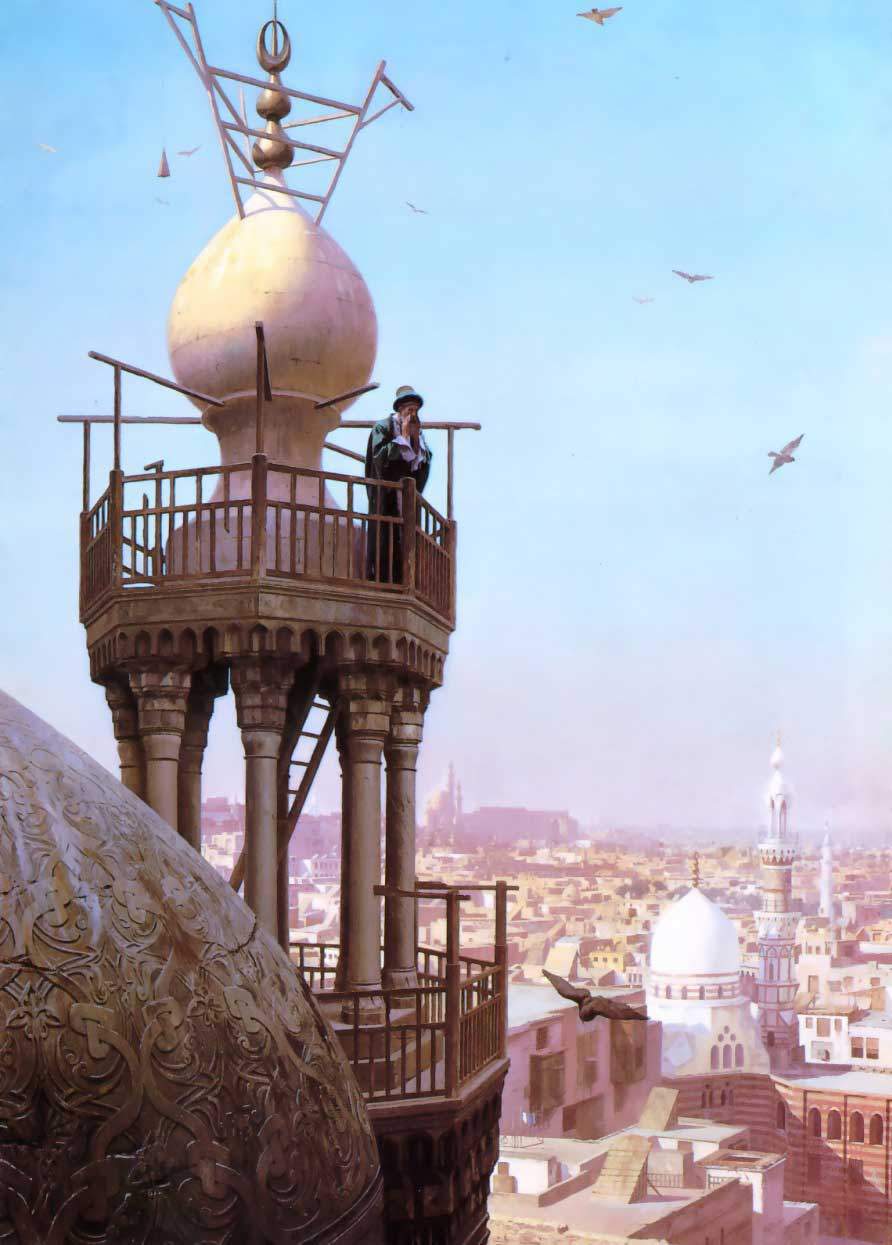ADZAN
The Adzan is called out by a muezzin (مؤذن) from the mosque five times a day, traditionally from the minaret, summoning Muslims for salat or worship.
Book of Call to Prayer, Bukhari :: Book 1 :: Volume 11 :: Hadith 578: When the Muslims arrived at Medina, they used to assemble for the prayer, and used to guess the time for it. During those days, the practice of Adzan for the prayers had not been introduced yet. Once they discussed this problem regarding the call for prayer. Some people suggested the use of a bell like the Christians, others proposed a trumpet like the horn used by the Jews, but ‘Umar was the first to suggest that a man should call (the people) for the prayer; so Allah’s Apostle ordered Bilal to get up and pronounce the Adzan for prayers.
Here are the words of the Adzan written phonetically, their english translation, and how many times each line is recited.
| Allāhu akbar | God is greater/the greatest. | Recited four times. |
| Ash-hadu an-lā ilāha illa allāh | I bear witness (to the fact) that there is no god but God. | Recited two times. |
| Ash-hadu anna Muḥammadan rasul ullāh | I bear witness (to the fact) that Muhammad is God’s messenger. | Recited two times. |
| Hayya ʿalas-ṣalāh | Come to worship. | Recited two times. |
| Hayya ʿalal-falāḥ | Come to the good. | Recited two times. |
| As-salatu Khayrun Minan-nawm | Worship is better than sleep. | Recited only at the first call to worship each day (i.e., atfajr, or dawn). |
| Hayya ʿala khayr al-‘amal. | Come to the best of actions. | Only Shiʿī Muslims add this. |
| Allāhu akbar | God is greater/the greatest. | Recited two times. |
| Lā ilāha illā-Allāh | There is no god but God. | Recited once. |

I learned the Adzan while living in the city of Yogyakarta on the island of Java, Indonesia when I was studying at Universitas Gadjah Mada (UGM) in the city’s young hip downtown area. I studied with two doctoral students who taught me a few different vocalizations and rhythms to the Adzan. I quickly learned that each muezzin brings their own unique identity and charm when they call for prayer and that while there are stylists guidelines to the Adzan much of its art stems from individual expression and inspiration.
The Adzan is not just a call that organizes and reminds Muslims to go to mosque to pray. The call is an oral symbol of Islam which forms an integral part of the soundscape of many urban and rural landscapes. For hundreds of millions of people each day, the Adzan is part of their daily auditory experience and so I chose to produce my own Adzan and incorporate it into my portfolio so that a wider audience could appreciate it.
To watch my version of the Adzan go to my youtube page.